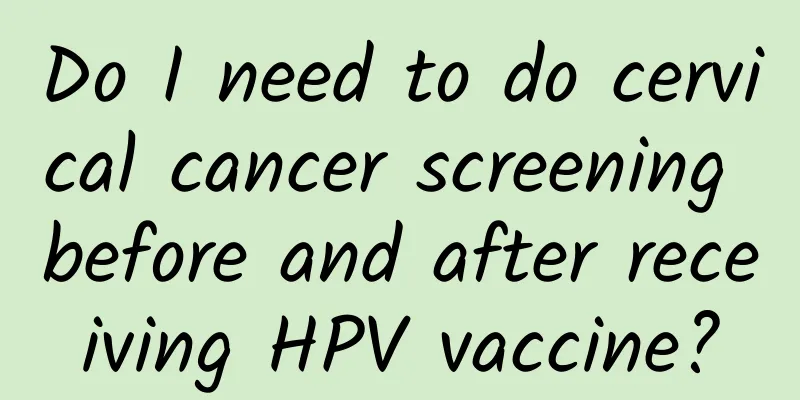Do I need to do cervical cancer screening before and after receiving HPV vaccine?

|
1. Why do you need cervical cancer screening? Unlike other cancers, cervical cancer not only has a clear cause, but also a clear pathogenesis. Persistent infection with high-risk HPV is the main cause of cervical cancer, and its development is a long-term, multi-stage process. It is generally believed that it takes about 10 years for persistent infection with high-risk HPV to develop into cervical cancer. The whole process is divided into three stages: Persistent HPV infection - precancerous lesions (CIN) - cervical cancer. The above characteristics show that we can achieve "early detection and early intervention" to block the progression of the disease. "Cervical cancer screening" is a measure adopted worldwide, which can effectively reduce the incidence and mortality of cervical cancer. In countries or regions with a complete screening system such as North America, Australia and Europe, cervical cancer has been eliminated. In developing countries, because screening is not popular, the incidence and mortality of cervical cancer are still on the rise. There are two groups of people who are extremely in need of cervical cancer screening: The first group is the general population, usually women over 21 years old who have sex should be screened regularly; the second group is the high-risk group, which refers to people with high-risk factors such as "first sexual intercourse age under 18, multiple sexual partners, multiple births, sexually transmitted diseases, smoking". Cervical cancer screening should continue until the age of 65. 2. Do I need to do cervical cancer screening before getting the HPV vaccine? For women who have sex, if they have not participated in effective cervical cancer screening before, it is recommended to do a screening before vaccination. If cervical cancer and precancerous lesions are found, they can receive timely and effective treatment. 3. Do you need regular screening after HPV vaccination? After receiving the HPV vaccine, you still need to do regular cervical cancer screening. No matter which HPV vaccine you receive, it cannot prevent all HR-HPV types. The current bivalent and quadrivalent vaccines target HPV16 and 18 types, and can only prevent about 70% - 80% of cervical cancer. The nine-valent vaccine can only prevent about 90% of cervical cancer. And the vaccine's protective effect on older women is lower than that on younger women. |
<<: Breast cancer screening: choosing the method that's best for you
>>: Eczema: An unexpected dialogue with the skin
Recommend
What brand is the Little Whale Mask? How to distinguish between whitening and hydrating in whale masks?
The Little Whale Mask is a Korean clinic product,...
What medicine can make menstruation come?
Why didn't my period come? I believe many wom...
Symptoms of Yin deficiency and dampness in women
People with Yin deficiency and damp-heat constitu...
Eat "2 Whites" in Spring! Follow the seasons and spend a healthy spring
Source: Xinhuanet The winter when everything is d...
How long does it take to get menstruation after weaning?
For postpartum mothers, while taking care of thei...
Women are manifestations of alkaline constitution
As we all know, whether a person is healthy or no...
Can I eat cherries when I have my period?
Generally, cherries are bright red in color when ...
What does labor contractions feel like?
Pregnant women will experience uterine contractio...
What kind of pear is Laiyang pear? When will Laiyang pear be available?
Laiyang pear is the "elder" among Jiaod...
What causes vulvar swelling and pain in late pregnancy?
The late stage of pregnancy is a very important t...
What to do if milk keeps leaking after weaning
It is common for breasts to leak milk during the ...
How to control breast nodules level 3
Grade three breast nodules have a tendency to bec...
How to prevent fetal arrest when preparing for pregnancy after fetal arrest
For female friends, pregnancy is a great joyous e...
What causes leg cramps in women
Calf cramps are a common condition encountered by...









